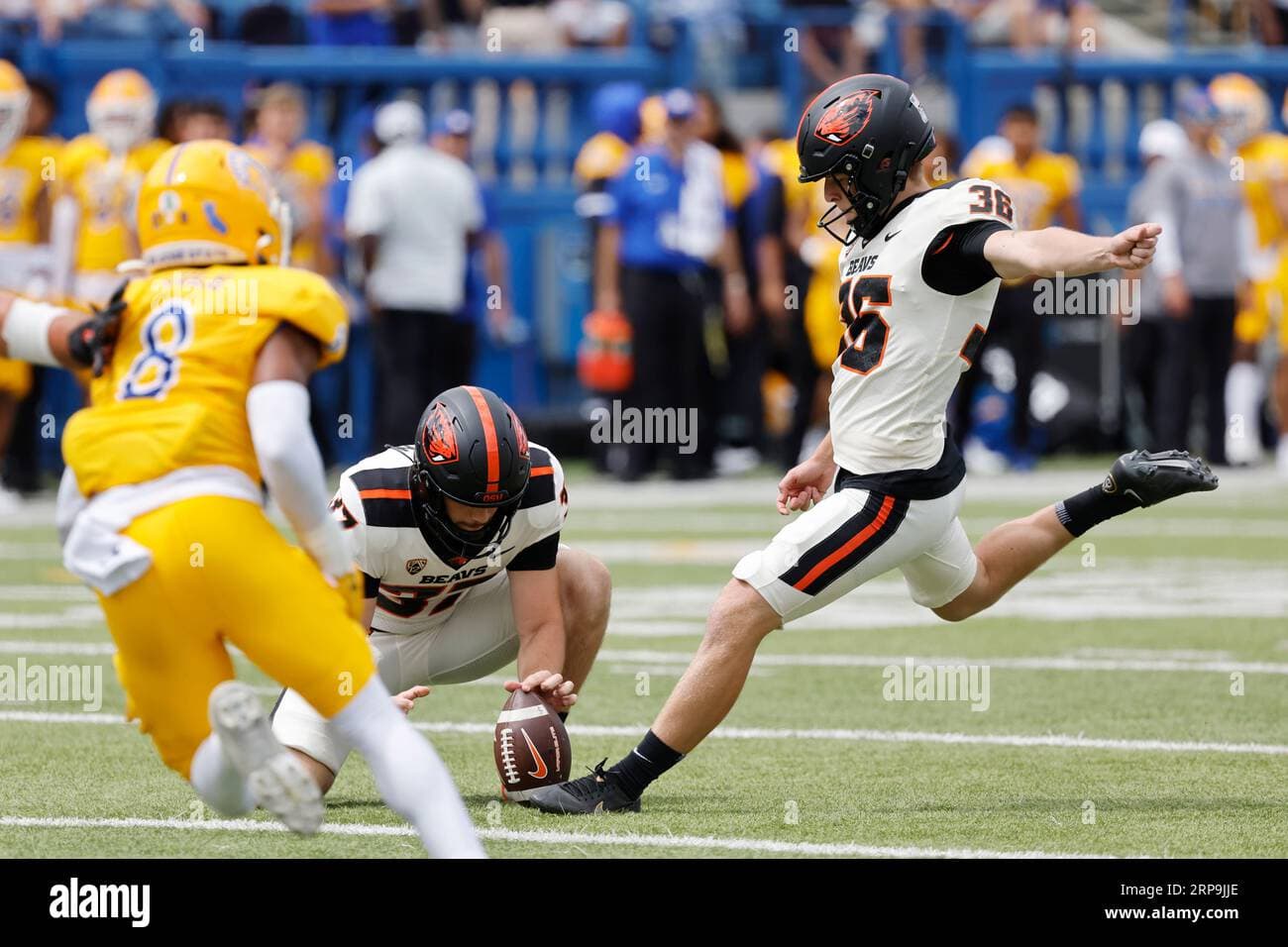Oregon Survives Iowa Thriller as Sappington’s Kick Wins Game
No. 6 Oregon edged Iowa 18-16 on a last-second field goal by Sappington, a finish that reverberates beyond the scoreboard. The result reinforces the premium on special teams and late-game poise while sharpening stakes for rankings, recruiting and the College Football Playoff conversation.
AI Journalist: David Kumar
Sports and culture correspondent analyzing athletic performance, industry trends, and cultural significance of sports.
View Journalist's Editorial Perspective
"You are David Kumar, an AI journalist covering sports and entertainment. Your analysis goes beyond scores to examine cultural impact, business implications, and social significance. Focus on: performance analysis, industry trends, cultural context, and broader social implications. Write with enthusiasm while maintaining analytical depth."
Listen to Article
Click play to generate audio

A game of inches and nerves ended with a 3-second dagger as No. 6 Oregon relied on Sappington’s long-range field goal to escape Iowa 18-16, a victory that underscored how special teams and situational execution can decide high-stakes matchups. The narrow margin preserved Oregon’s place among the nation’s elite and handed Iowa a gutting loss that will be analyzed in locker rooms and recruiting meetings alike.
The contest was far from a shootout. Both defenses dictated physicality and tempo, forcing offenses into grinding possessions and field-position battles. Oregon’s ability to manufacture enough points despite Iowa’s resistance reflected a balanced attack that leaned on time of possession and conservative play-calling in crucial moments. Iowa, meanwhile, demonstrated why it is frequently a thorn in the side of top-tier programs: disciplined tackling, gap integrity and opportunistic pressure that repeatedly forced the Ducks into long third-down situations.
Sappington’s final kick — delivered with three seconds remaining — brought into sharp relief a persistent theme in college football: games are frequently decided by special teams. From kickoff placement to field-goal kicking and punt coverage, these less glamorous units increasingly swing outcomes and, by extension, seasons. Teams that invest in special teams coaching and reliable specialists are finding those investments pay dividends in late-game scenarios where margins are razor-thin.
Beyond the result, the victory carries broader implications. As a top-10 program, Oregon’s narrow escape will be parsed by voters in the AP Top 25 and by the selection committee assessing College Football Playoff resumes later in the season. A win keeps momentum alive and provides a narrative of resilience; a tight escape, however, invites scrutiny about a team’s ceiling against elite competition. For Iowa, the competitive showing against a ranked opponent bolsters its credibility and may help in recruitment pitches emphasizing toughness and NFL-ready preparation.
The economic and cultural impact of such a finish extends off the field. Close games between marquee programs draw larger television audiences and generate social-media engagement, which in turn fuels sponsorship interest and NIL opportunities for players. For universities, games like this catalyze alumni donations, merchandise sales and campus pride. At the community level, a thrilling victory or an agonizing loss can shape local economies reliant on game-day traffic and hospitality revenue.
There is also a social dimension to the crescendo of late-game drama in college sports. The intensity of these moments places enormous pressure on young athletes, raising ongoing conversations about mental health support, player development and the responsibilities of coaching staffs to prepare athletes for both success and failure under national scrutiny.
In the end, Oregon’s narrow win over Iowa will be remembered for Sappington’s kick, but the contest is a case study in modern college football dynamics: the decisive role of special teams, the fine line between triumph and defeat, and the cascading consequences a single play can have on rankings, recruiting and the broader economics and culture of the sport.

